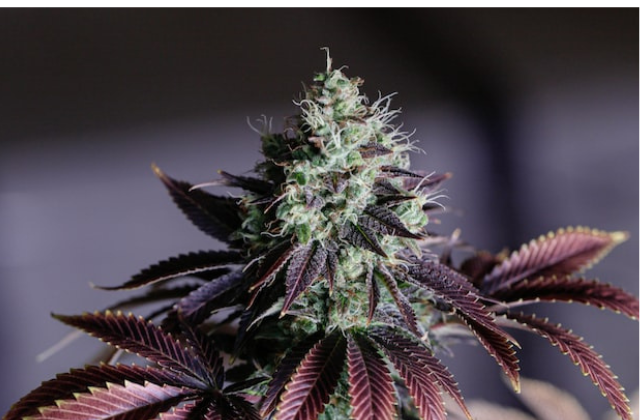
Cannabis FAQ List
Cannabis is a widely debated and controversial substance around the world. With this being said, there are many frequently asked questions bout cannabis including:
- What is cannabis?
- Is cannabis legal?
- What are the effects of cannabis?
- How is cannabis consumed?
- What are the potential medical benefits of cannabis?
- What are the potential risks or drawbacks of cannabis use?
- Can cannabis be addictive?
These are only a few examples of common questions that people have about cannabis. If you have a specific question in mind, feel free to ask in the comments.
1. What is cannabis?
Cannabis, also known as marijuana or hemp, is a plant that contains natural compounds called cannabinoids. The most well-known cannabinoid is tetrahydrocannabinol (THC). It’s responsible for the psychoactive effects of cannabis. Another well-known cannabinoid is cannabidiol (CBD). CBD is a less psychoactive compound than THC. It’s helpful for treating mood disorders and seizures.
Cannabis is used for recreational and medicinal purposes. It can be consumed in many ways including smoking, vaporizing, and ingesting infused-foods.
Cannabis plants are classified as either marijuana or hemp. Marijuana plants contain high levels of THC . Marijuana is generally used for recreational and medicinal purposes.
Hemp plants contain lower levels of THC and high levels of CBD. Hemp CBD is also used for recreation and medical purposes, like THC. The hemp plant also has other industrial uses, such as making textiles and paper.
2. Is cannabis legal?
The legal status of cannabis varies around the world. In some places cannabis is legal for recreational or medicinal use. In other places it is completely illegal.
In some regions cannabis is decriminalized. This means possession of small amounts of cannabis may not result in criminal charges. But decriminalized does not mean legalized, so it may still be illegal to sell or produce.
In the United States, the legal status of cannabis is complex and varies by state. Cannabis is classified as a Schedule I controlled substance at the federal level. Meaning that it is illegal to possess, use, sell, or distribute.
However, many states have legalized cannabis for medical or recreational use. Some US states passed laws that decriminalize the possession of small amounts of cannabis.
The legal status of cannabis can change quickly. Always check current laws in your area before using or possessing cannabis. Consult with a legal professional who is familiar with the relevant laws if you are wondering about the legal status of cannabis.
3. What are the effects of cannabis?
The effects of cannabis vary depending on the strain, the method of consumption, and the characteristics of the user. Some common effects of cannabis include:
- Changes in mood – Cannabis can cause users to feel relaxed, euphoric, or happy. It can also cause anxiety, paranoia, or other negative emotional states in some people. THC is not best for those with anxiety. CBD is better for people battling mood disorders.
- Alterations in perception – Cannabis can cause changes in a users perception of time, space, and reality. In some people, it may cause visual and auditory hallucinations in some cases, although this is rare.
- Physical effects – Cannabis does cause some physical effects such as dry mouth, bloodshot eyes, and increased appetite. This depends on the person. Cannabis use may impair motor skills, which can increase the risk of accidents.
- Medical benefits – Many people use cannabinoids for their potential medical benefits. These include relief from chronic pain, nausea, seizures, and mood disorders.
Important: the effects of cannabis can be unpredictable. It can be dangerous to drive or operate heavy machinery while under the influence. The long-term effects of heavy cannabis use are not fully understood and you should consult with a physician with any questions.
4. How is cannabis consumed?
There are few common ways to consume cannabis including:
- Smoking – Dried cannabis flower can be rolled into a joint or smoked in a pipe or bong.
- Vaporizing – Cannabis can be vaporized using a vaporizer or cartridge. This method produces a vapor that is inhaled, rather than smoke. Many experts claim vaping is healthier than smoking.
- Edibles – Cannabis can be infused inside food and drinks and consumed orally. This method of consumption can have longer onset times. Since THC must be absorbed through the digestive system before entering the bloodstream. Versus inhalation goes directly into the bloodstream through the lungs.
- Oils and tinctures – Cannabis can be consumed as an oil or tincture. These are typically taken orally or applied topically. Many tinctures are made with coconut oil or alcohol.
- Topicals – Cannabis can be applied topically as a cream, lotion, or oil. It gets absorbed through the skin. This method does not produce psychoactive effects.
5. What are the potential medical benefits of cannabis?
Cannabis has been used for medicinal purposes for centuries. Some potential medical benefits of cannabis include:
- Pain relief – Cannabis may be effective in treating pain related to chronic pain, cancer, and multiple sclerosis.
- Reducing inflammation – Cannabinoids may have anti-inflammatory properties that reduce inflammation in the body.
- Controlling seizures – CBD may be effective in controlling seizures in people with epilepsy.
- Reducing anxiety – CBD may be effective in reducing anxiety in some people, although THC can also cause anxiety in others.
- Improving sleep – Cannabinoids may be helpful as a sleep aid for those with insomnia or other sleep disorders. CBN is a cannabinoid that has reported sedative effects.
- Reducing symptoms of multiple sclerosis – Cannabis may reduce muscle spasms and symptoms of multiple sclerosis.
- Reducing symptoms of Crohn’s disease – Cannabis may reduce abdominal pain and diarrhea associated with Crohn’s disease.
It worthy noting that more research is needed to completely understand the potential medical benefits of cannabis. Cannabinoids may not be appropriate or effective for everyone. Consult with a healthcare professional before trying medical cannabis. Fortunately, cannabis has low human toxicity, so trying it may be low risk and a good first option than harsher medicines.
6. What are the potential risks or drawbacks of cannabis use?
Like any substance, cannabis can have risks and drawbacks. Especially when it’s in excess or by those who are not prepared for the effects. Some risks and drawbacks of cannabis use include:
- Psychoactive effects – Cannabis can cause psychoactive effects such as changes in mood, perception, and behavior. This can be uncomfortable or unpleasant for some people.
- Impairment – Cannabis can impair coordination and judgment. This can increase the risk of accidents or injuries. It is dangerous to drive or operate heavy machinery while under the influence of the drug.
- Dependence – Regular, long-term use of cannabis can lead to dependence or formation of a habit. Although cannabis withdraw symptoms are nonexistent compared to alcohol.
- Negative effects on mental health – THC can worsen symptoms of anxiety, depression, and other mental health conditions in some people. Cannabis may increase the risk of developing psychosis in people at risk of mental disorders.
- Negative effects on lung health – Smoking anything has negative effects on lung health. Although smoking cannabis flowers may be healthier than smoking cigarettes. Healthier methods of consumption than smoking are edibles and vaporizers.
- Legal consequences – Possession, use, or sale of cannabis is illegal in some places. Individuals may face criminal charges associated with cannabis. Understand your local laws around cannabis before using.
7. Can cannabis be addictive?
Cannabis can be habit forming, but it has low physical addiction. It’s much less addictive than alcohol and nicotine. Both alcohol and nicotine are highly addictive chemicals with severe withdraw symptoms.
The risk of addiction varies depending on the individual’s genetics, environment, and frequency of use.
Heavy long-term use of cannabis may lead to cannabis use disorder: the inability to stop cannabis use despite negative consequences. Fortunately, this is a treatable and diagnosable condition.
Symptoms of cannabis use disorder include:
- A strong desire to use cannabis
- Difficulty controlling cannabis use frequency
- Using cannabis in large amounts or for a longer period of time than intended
- Persistent efforts to cut down or control cannabis use with no success
- Experiencing uncontrollable cravings for cannabis
- Failure to fulfill important obligations due to cannabis
- Continued use of cannabis despite problems caused or worsened by use
- Giving up important activities in favor of cannabis use
- Using cannabis in situations that are physically hazardous. Such as operating heavy machinery.
If you are experiencing symptoms of cannabis use disorder, it may be helpful to seek professional help. Therapy or support groups can go a long way. Cannabis use disorder is a treatable condition with effective treatments available such as therapy.
